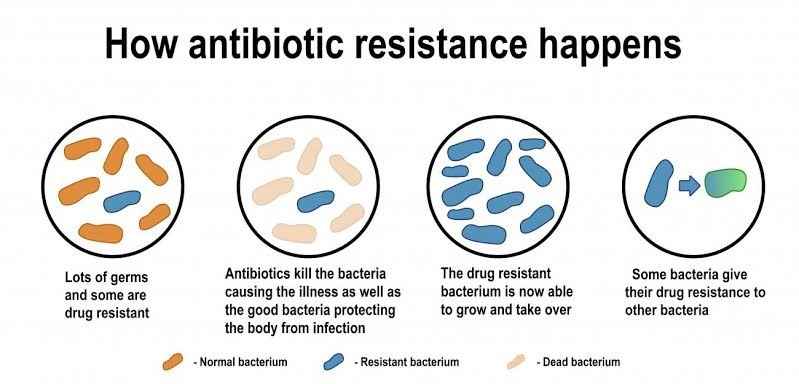Nanoplastics Escalate Antibiotic Resistance, Threatens Global Health
Why in the news?
A study reveals nanoplastics from single-use plastic bottles can facilitate antibiotic resistance through gene transfer mechanisms, emphasizing the urgent need to combat plastic pollution and its health impacts.
Impact of Nanoplastics on Antibiotic Resistance:
- A study reveals nanoplastics from single-use plastic bottles (SUPBs) contribute to antibiotic resistance (AR).
- AR occurs when bacteria become resistant to antibiotics, complicating infection treatments.
- Polyethylene terephthalate bottle-derived nanoplastics (PBNPs) affect the gut microbiome, turning beneficial bacteria like Lactobacillus acidophilus into carriers of AR genes.
Mechanisms of Resistance Gene Transfer
- Two primary pathways for AR gene spread were identified:
- Direct Transformation Pathway: PBNPs transport AR plasmids between bacteria.
- OMV-Induced Pathway: Oxidative stress caused by PBNPs increases outer membrane vesicle secretion, aiding gene transfer.
- Horizontal gene transfer (HGT) enables AR genes to spread to harmful bacteria, worsening the AR crisis.
Nanoplastics and Environmental Concerns:
- Nanoplastics are tiny synthetic particles (1–1000 nm) classified as primary (intentionally produced) or secondary (from plastic degradation).
- The study underscores the urgent need to address plastic pollution and its link to AR.
- Highlights the importance of adopting sustainable alternatives to single-use plastics to mitigate environmental and health risks.
Sources Referred:
PIB, The Hindu, Indian Express, Hindustan Times




